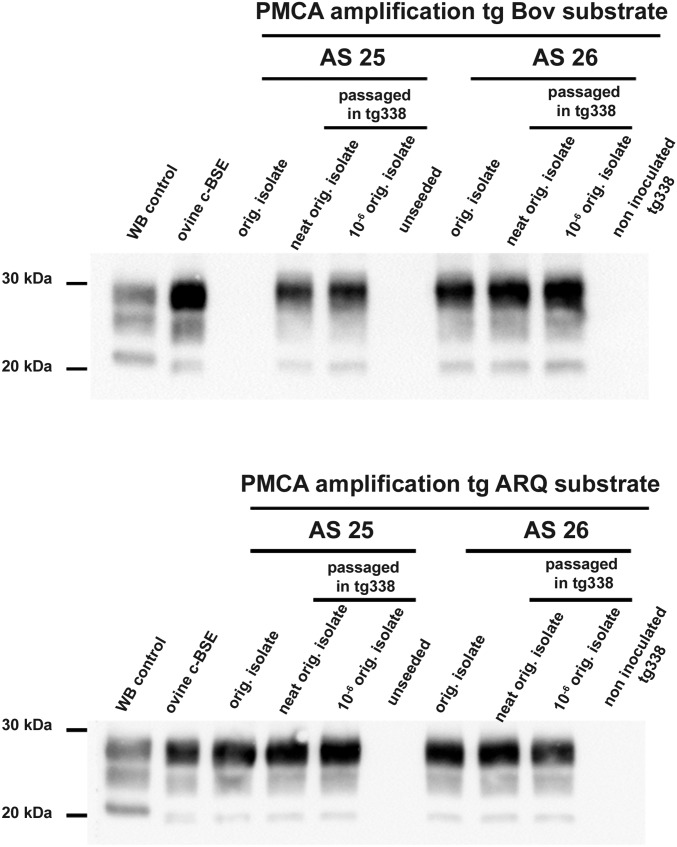Fig. 5.
PMCA seeding activity detection in 2 bioassay endpoint-titrated atypical/Nor98 isolates. Two atypical/Nor98 isolates, AS 25 and AS 26 (Table 3), were endpoint-titrated in tg338 mice (1/10 dilution series, 6 tg338 mice per dilution). For both isolates, the last positive transmissions were observed in mice that received a 10−6 dilution of the original 10% w/vol brain material (SI Appendix, Table S3). The original AS isolates and the brains of clinically affected mice inoculated with neat and 10−6 diluted isolates were used to seed PMCA reactions that either used tgARQ or tgBov as substrate. PMCA reactions seeded with age-matched inoculated tg338 mice and unseeded reactions were included as specificity controls. Reactions were subjected to 3 (tgARQ substrate) or 4 (tgBov substrate) amplification rounds, each comprising 96 cycles (10 s sonication, 14 min and 50 s incubation at 39.5 °C) in a Qsonica700 device. The PMCA reactions were analyzed by Western blot for the presence of abnormal PK-resistant PrP (PrPres) using the Sha31 (epitope 145-YEDRYYRE-152) and/or the 12B2 (89-WGQGG-93) anti-PrP antibodies. Each Western blot included a classical scrapie isolate (labeled as WB control) and an ovine c-BSE isolate as controls.

